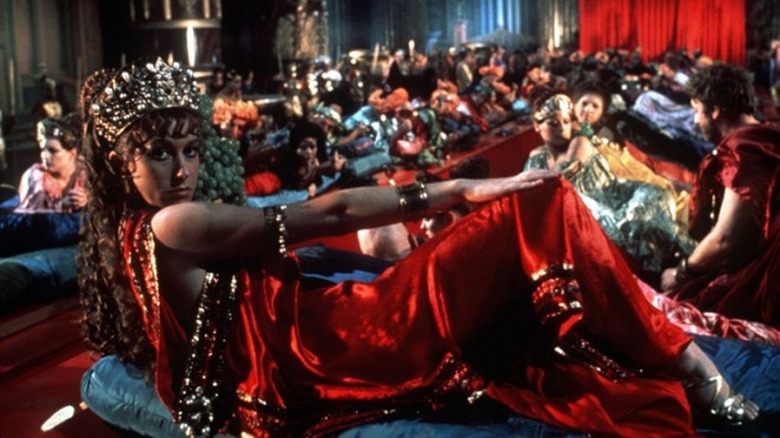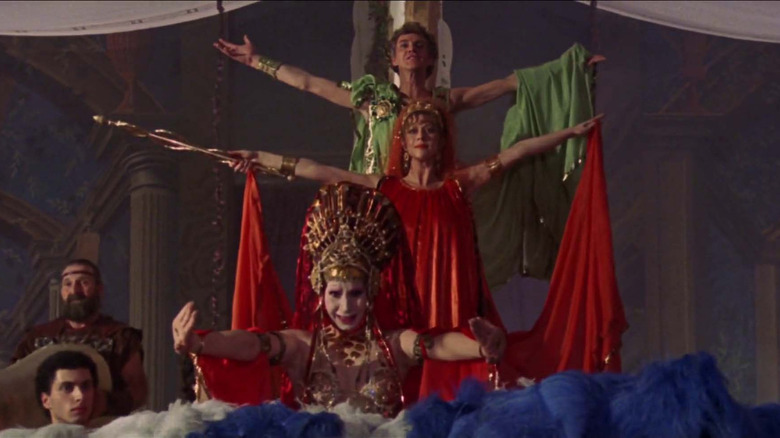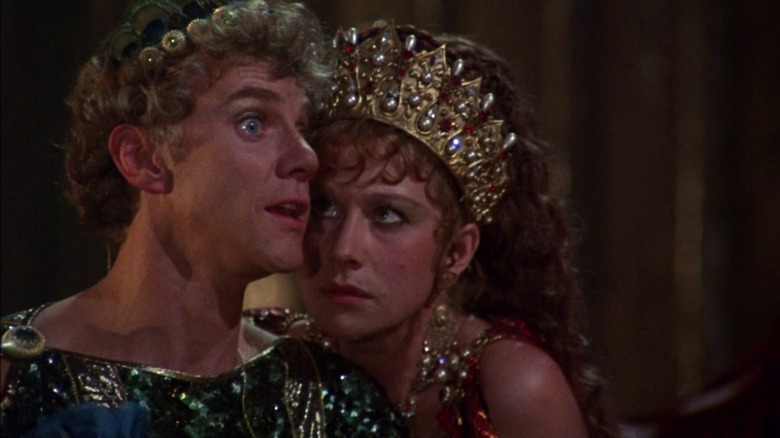Helen Mirren Compared The Set Of Caligula To A Nudist Camp
Gaius Caesar Agustus Germanicus, better known as Caligula (a translation of his nickname, Little Boots), was one of the most notorious leaders in world history. At the beginning of his reign, he reinstated the system of aristocracy that his predecessor had dismantled, declare amnesty, and cut taxes. He also suffered an undiagnosed fever of some kind a few months into his tenure, and emerged from his bedroom seemingly insane. He began insisting that he be worshiped as a god, he married his own sister, and began wasting money on strange extravagances. He staged expensive mock sea battles for his own amusement, and built one of the largest ships ever constructed (it was certainly not practical). When the money ran out, he gutted the aristocrats and opened a brothel in the capital. He took to torturing people for fun. It is apocryphal that he appointed a horse to the senate. Eventually, Caligula was assassinated in AD 41. He was only 29. He was succeeded by Claudius. A lot of this story is covered in the landmark 1976 British miniseries "I, Claudius," which the author highly recommends.
The life of Caligula was covered in much more graphic detail in the 1979 feature film "Caligula" which was credited to Bob Guccione and Giancarlo Lui as its directors, although famed exploitation filmmaker Tinto Brass led the production and heavily re-wrote the script to include more orgies, more nudity, and more phallic imagery. There is no credited screenwriter on "Caligula," as the script, written by Gore Vidal, was altered beyond recognition, much to Vidal's chagrin. The only on screen credit is "Based on a screenplay by Gore Vidal."
"Caligula" is one of the more openly depraved films in cinema history. This is a compliment. Ostensibly a high-end historical drama — as belied by the inclusion of cast members like Malcolm McDowell, Peter O'Toole, John Gielgud, and Teresa Ann Savoy — "Caligula" is perhaps the most expensive sexploitation films ever made. The script passed through the hands of Lina Wertmüller and Vidal, both ostensibly classy writers, before Brass came in and sexed up the joint. Producer Guccione, the founder of Penthouse magazine, initially intended "Caligula" to be a massive Hollywood production in the vein of "Citizen Kane." The vital difference being that "Kane" featured no unsimulated sex, no queer fellatio, and no scenes of brachioproctic insertion (look it up ... or don't).
Mirren, who played Caligula's wife Caesonia in "Caligula," reminisced in a 2015 interview with People about working on such a ... nude ... production. She talkes about how nudity was a sticking point for her as an actress, how she's relieved she's not asked to do it anymore — and also how filming "Caligula" was the exception to the rule.
Dante's Inferno
In the People interview, Mirren admitted to hating the experience of disrobing in a crowded room: "I always hated it. Always. It's not fun to be on a film set and be one of the only ones naked." But she also explained that being around so many other naked people put her more at ease. No longer the only one naked, it became odd to come to work dressed: "Everyone was naked in that," she said. "It was like showing up for a nudist camp every day. You felt embarrassed if you had your clothes on in that movie."
Mirren's description of "Caligula" is amusing, calling it "an amusing mix of art and genitals." In the 2008 book "Caligula and the Fight for Artistic Freedom: The Making, Marketing, and Impact of the Bob Guccione Film" written by William Hawes, Mirren is quoted (by the New York Times) as always being pointedly positive about this truly odd and trashy film:
"I've never opened my mouth to denigrate 'Caligula.' I was pretty young when I made that — not physically so much as experienced in film. And you know what? It was a great experience. It was like being sent down to Dante's 'Inferno' in many ways."
It was the era
Although Mirren was generally uncomfortable with nudity, in a conversation with Vanity Fair, she seemed to have accepted how common it was in the early days of her career. When she was first asked to act in a nude scene, she recalls:
"Does it really matter? I was doing nude scenes [from] the first moment I started doing movies ... It was the era ... It seemed to be nothing to get your knickers in a twist over."
"Caligula" was lambasted upon its release. Roger Ebert gave the film zero stars, calling it "sickening, utterly worthless, shameful trash," and saying that it "is not good art, it is not good cinema, and it is not good porn." He does have a point. "Caligula" is a sprawling, 156-minute travesty that takes a strong constitution to get through. The pervasive sex, constant nudity, and human fluids are not quite enough to keep one interested. One can only admire it for the filmmakers' utter commitment to making one of the more unwatchable sex films ever set to celluloid. It aims for Pasolini and misses. Its themes of absolute power corrupting absolutely are lost in a sea of nipples.
Mirren has remained at peace with "Caligula," and lovers of cult cinema have embraced its Ken Russell-like excess and midnight movie weirdness. Love it or hate it, it's an experience worth having.


